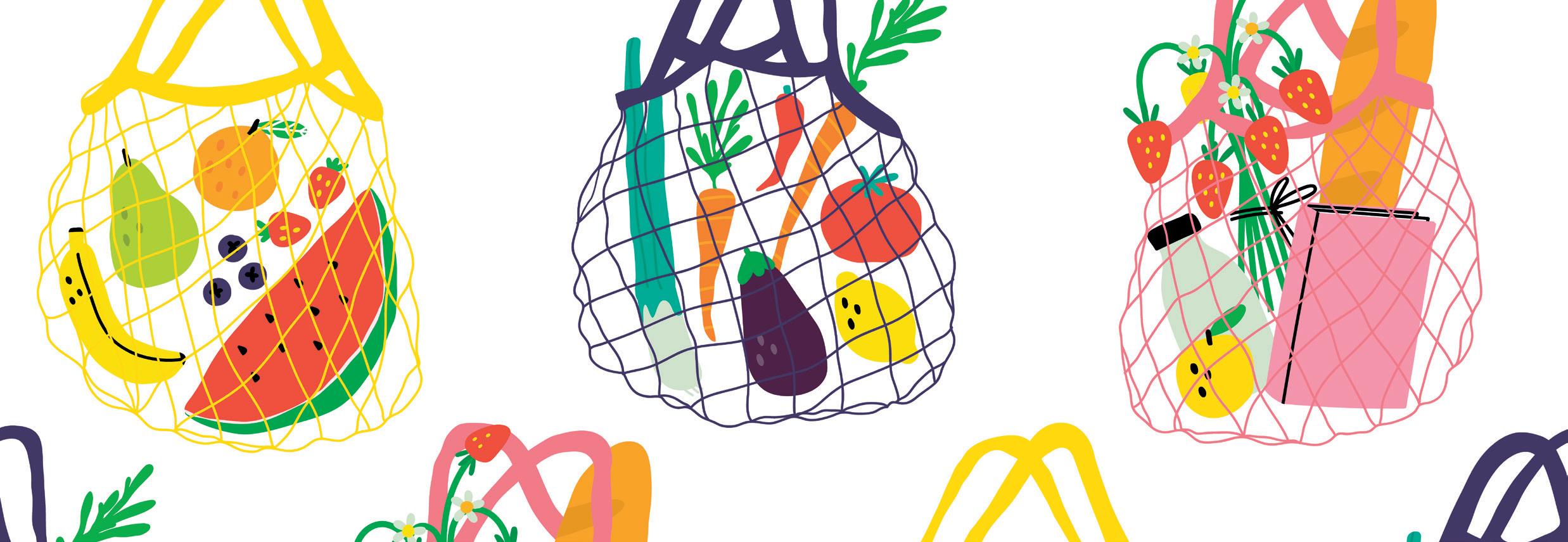
4 minute read
18 Smart shopping tips
We could repeat the ugly facts about how bad the meat industry is for the planet, but we’re sure you know this all too well. Embracing more of a plant-based diet is quite simply one of the best things we can do to reduce our impact on the planet. “As we become more aware of the urgency to act on climate change, addressing what we eat is a key area to reduce our own environmental impact. Eating more plants and less meat is a good step to take,” says Jo Hand, founder of Giki, an app which holds sustainability information on supermarkets.
When you’re doing your weekly shop, try to not to gravitate towards the meat aisle. Look to plant-based products first, like beans and pulses before you go grabbing the three for £10 meat.
Advertisement
Although ethical meat-eating is somewhat of a misnomer, you can buy better. Look for RSPCA assured products and avoid red meat where possible, as it has a considerably higher carbon footprint than white meat. Buy only what you need; have an idea for how you’re going to use the products, ensuring less food waste.
Say no to unnecessary plastic
We know that going plastic-free is a difficult experience. Despite supermarket promises, plastic still dominates the fridges and shelves, and although zero-waste shops are a more conscious alternative, they remain expensive and inaccessible. Think before you throw plastic packaged products in your trolley, and assess whether the packaging is necessary. Can you buy a card packaged alternative? Does fruit and veg really need packaging at all? Probably not.
“Among the plastics commonly found in marine animals are straws and plastic bags. Both items we can collectively stop using, considering there are more sustainable options out there,” says Bill Newbrough, founder of the Nature Bag which he claims is the most eco-friendly bag available. Although it may sound obvious, one of the smartest and most sustainable choices we can make is to ditch plastic bags, which supermarkets still dish out by the millions every year.
We recommend buying a sturdier and more practical alternative at the checkout, rather than buying online. All supermarkets should offer a ‘bag for life’, but we most prefer Lidl’s big reusable bags which only cost a few pence.
MAKE SMART, SUSTAINABLE SHOPPING OUR
FUTURE

When it comes to the big shop, we’re overwhelmed with choice and information. But among the noise, official *statistics* show that we are becoming more sustainably minded; we are buying less meat and buying more veg which would otherwise go to waste. As the big retailers are promising to cut down on plastic products, here’s our four easy ways that you can shop smarter.

Invest in re-usable options Check out: Supermarkets’ efforts for a green future on our website
It’s not just bags we can cut down on. Plastic water bottles sold at supermarkets often end in landfill or in the ocean rather than recycled. Due to well covered campaigns against singleuse plastic, many reusable bottles and cups are now available. Before you splash the cash ask yourself if you really need a flashy branded bottle. You can pop into Wilko and get one for only a fiver, considerably less than equivalents. We’d recommend washing it out first however, unless you like your water tasting metallic. Better than plastic I suppose.
The same goes for coffee cups, as most of us still drink from the cups offered in store, which often don’t get recycled.
We like rCups, which are made from recycled paper cups and keep your drink of choice nice and hot. Costs vary from £10-12, and yes the initial investment can seem daunting, but the discounts will eventually tot up, so you’ll be saving money in the long run. Winner.

*Statistics from statistasurvey: Share of sustainable shopping behaviours among UK shoppers in 2019 statista.com/statistics/1056522/sustainable-shopping-behaviour-of-uk-shoppers
Look beyond the supermarket
Zoe Morrison, author of Eco Thrifty Living, suggests to “Look outside the supermarkets for bulk, local, seasonal and less packaged food.” Although most of us are accustomed to the supermarket, you can find hidden gems in local markets and butchers. Shopping at a market ensures the produce you buy is locally grown, seasonal and can be a friendlier, hassle-free experience. There’s also no packaging involved, and it can save you some pennies.
You can also look at the many apps and websites that sell food either that’s near or past its best before dates. OLIO is a great app to try, as you and neighbouring people can list food to give away, resulting in less waste.
The Kind Store is a website which handily collates the most planet-friendly products for the home. The founder Natasha Tyler says, “By making small achievable changes to our daily life, we will have a big impact on the environment, animals and ourselves. Where we spend our money will shape the world we live in.”










